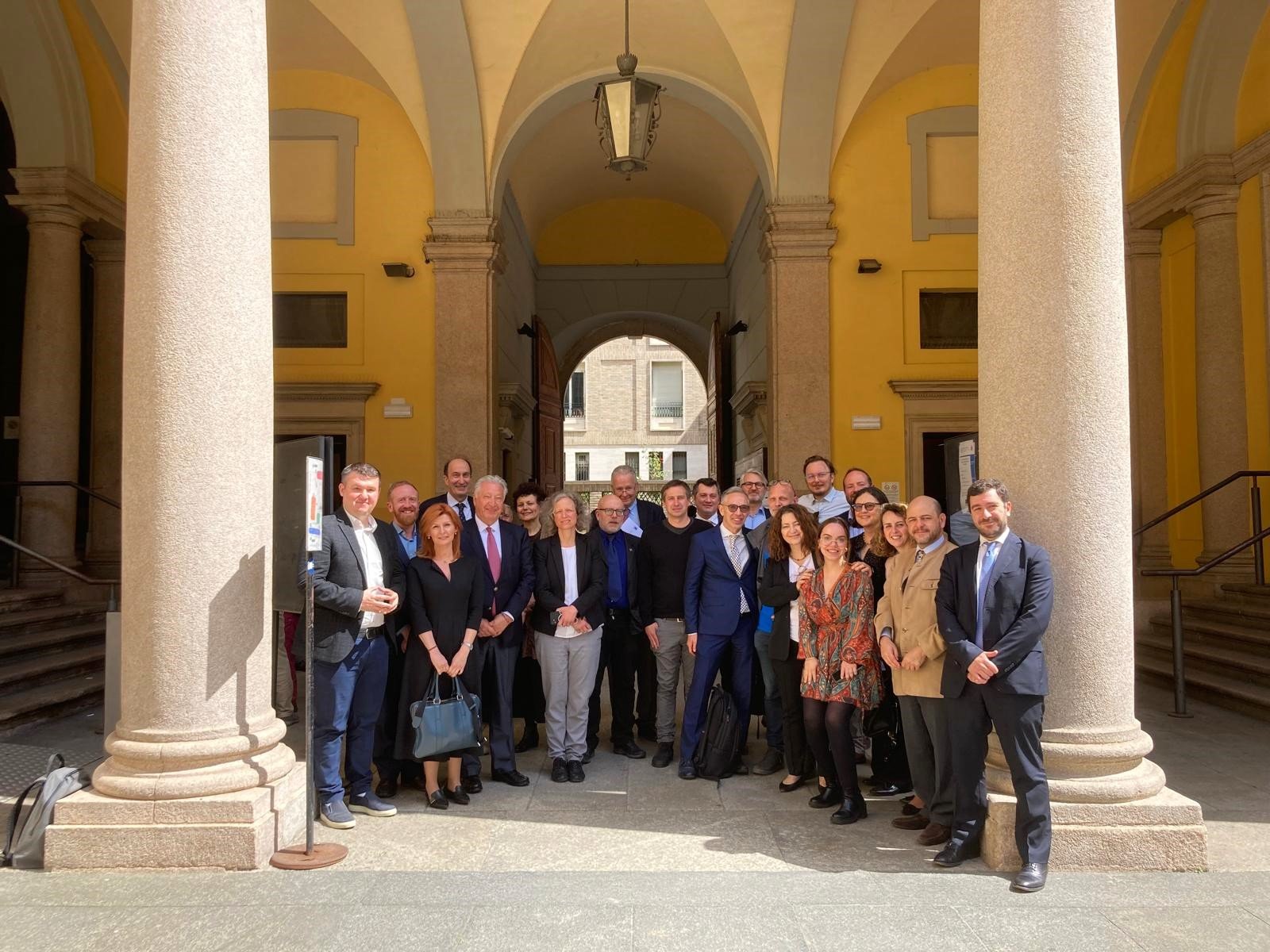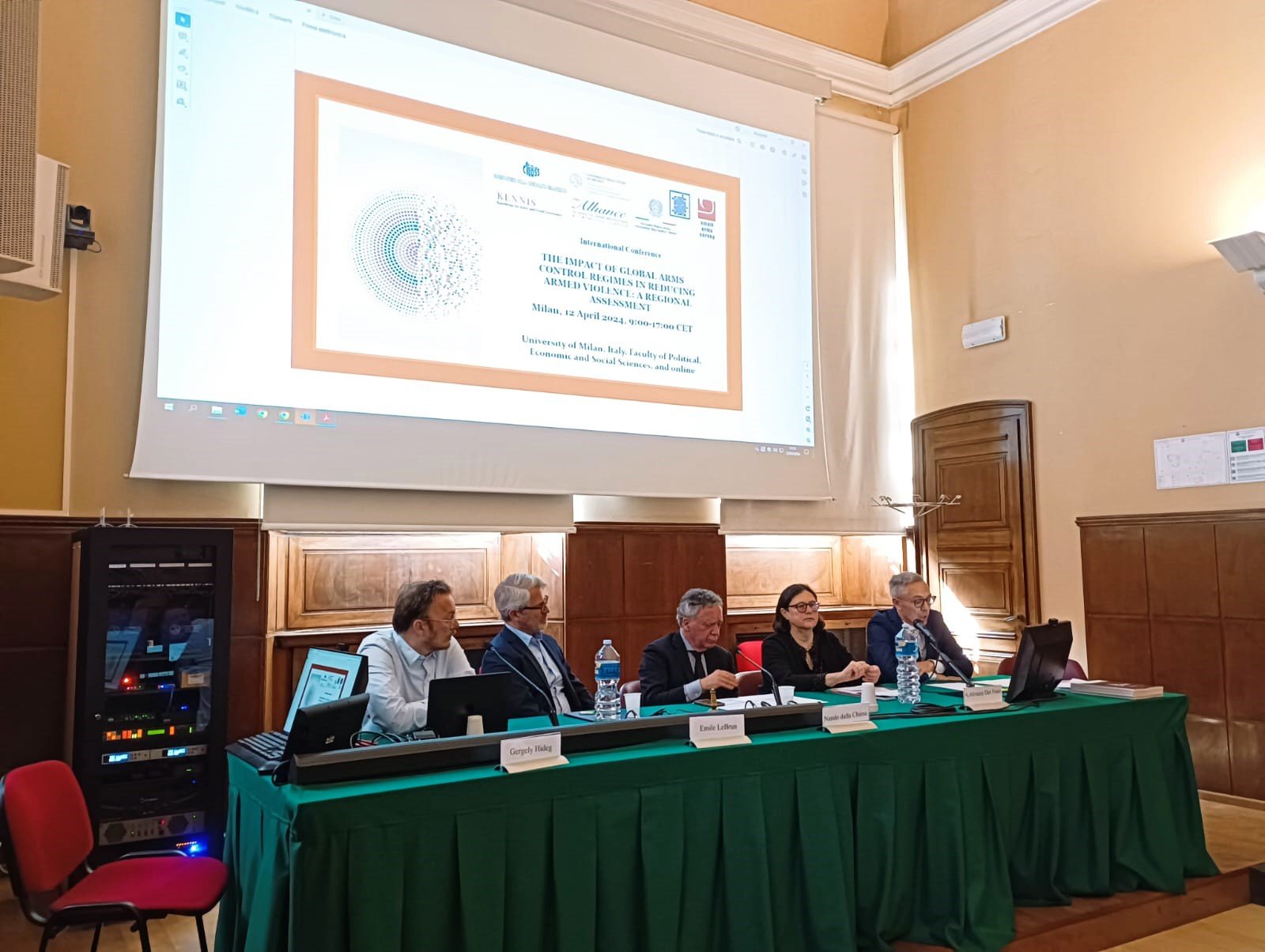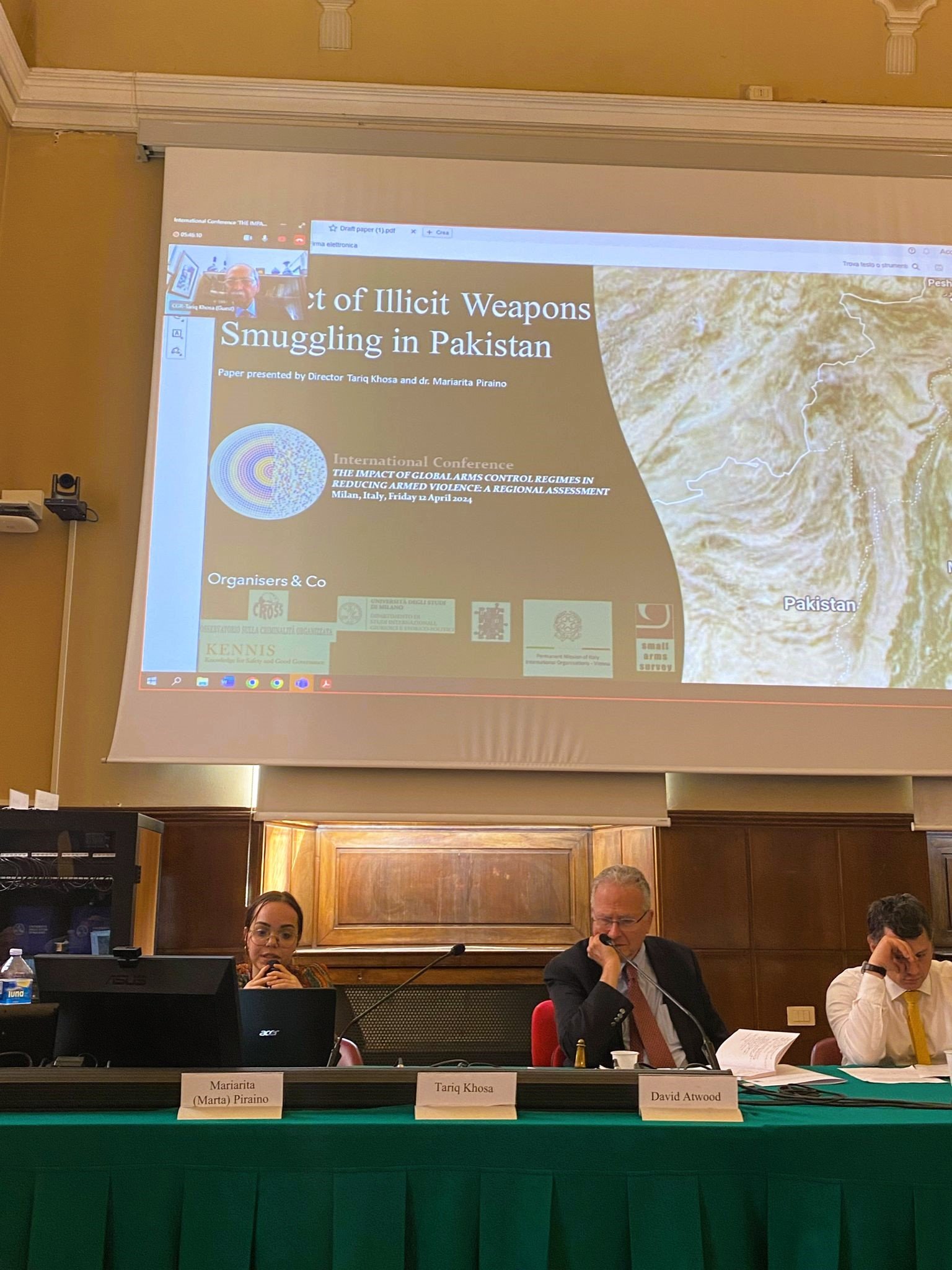The Impact Of Global Arms Control Regimes In Reducing Armed Violence: A Regional Assessment - a web story
On 12 April 2024, the Alliance in collaboration with the University of Milan organized an international conference on “The Impact of Global Arms Control Regimes in Reducing Armed Violence: A Regional Assessment”.
The meeting focused on assessing the impact of global arms control regimes on armed violence reduction, highlighting the importance of evidence-based approaches, inclusive strategies, and the role of civil society.
The conference was divided into several panel sessions highlighting different regional assessments. The Chair of the Alliance, Ian Tennant, and the Treasurer of the Alliance, Anna Alvazzi Del Frate, delivered a statement and had the opportunity to share the podium with Antonino Tedesco, from the Permanent Mission of Italy in Vienna, Diego Simancas, from the Permanent Mission of Mexico in Vienna, Emile Lebrun, from Kennis: knowledge for Safety and Good Governance, Simonetta Grassi, from UNODC, other experts, practitioner, and international organizations in the field of firearms.
Discussions emphasized the need for universal adherence to arms control instruments, effective national implementation, and the interconnection between global, regional, and national efforts. Future actions proposed include disseminating conference outcomes, engaging in upcoming institutional meetings, and seeking funding for long-term projects to maintain momentum and expand the community of practice.
Addressing the global issue of illicit firearms requires a multifaceted approach, considering over 1 billion small arms worldwide causing 250,000 deaths annually. While existing frameworks and regional instruments play a role, their true impact on reducing armed violence needs evaluation. Drawing on diverse knowledge from academia and NGOs is crucial for evidence-based policymaking, emphasizing human rights and victim-centric perspectives.
Actionable data, supported by innovative tools like AI, is essential at all levels. Civil society's involvement in data generation and collaboration with states is vital, potentially leading to the formation of a civil society expert group for arms control impact measurement. Key global conferences, such as the UN's program of action on small arms and light weapons, provide ongoing opportunities for dialogue and action.
Collaboration between states, NGOs, and international organizations is pivotal for impactful solutions. A call for more research on the impact of technology on arms control, particularly considering developments like 3D printing and automated weapon systems was made from the panellists. Civil society's advocacy, exemplified by initiatives like shadow country reports, has the power to urge governments toward transparent engagement in UN mechanisms. To ensure sustainable progress, it's imperative to undertake long-term, structured projects, potentially supported by EU funding.
16 Apr, 2024


